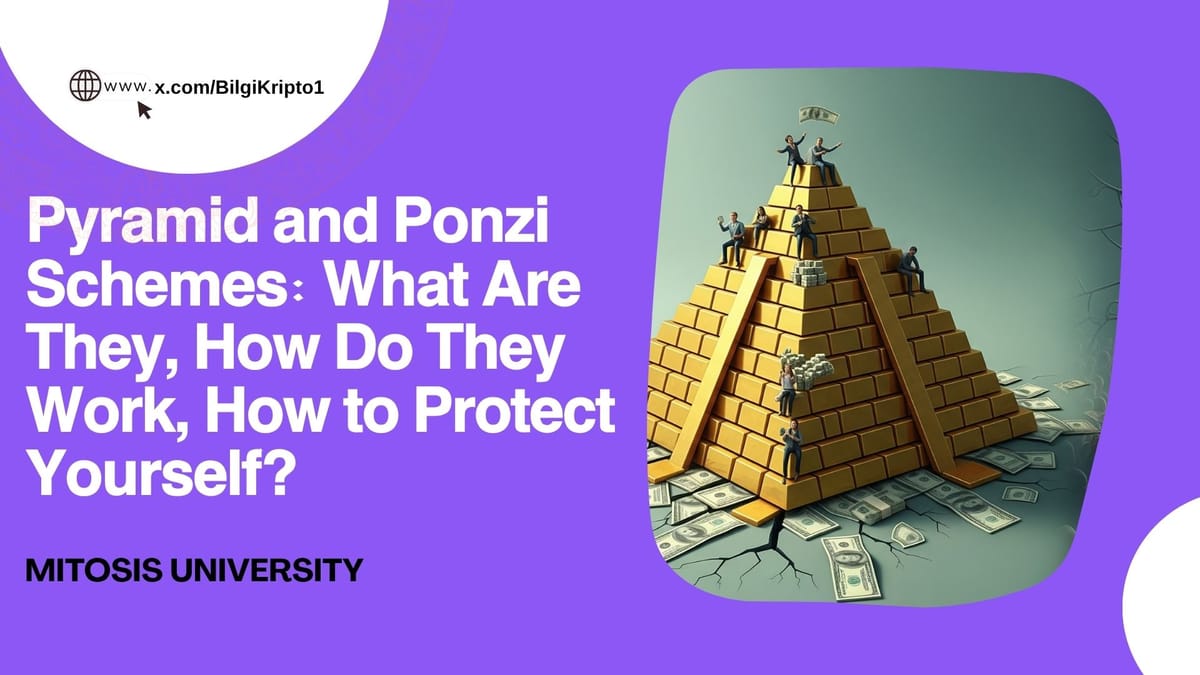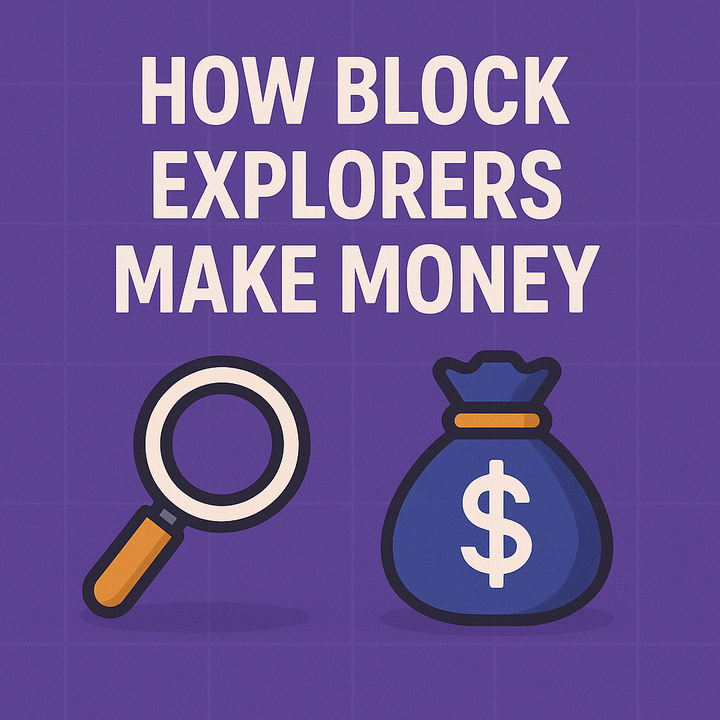Pyramid and Ponzi Schemes: What Are They, How Do They Work, How to Protect Yourself?

Introduction
In any type of investment whether in cryptocurrencies, stock markets, or other fields—investors usually ask the same two fundamental questions: “How much profit can I make?” and “How safe is this investment?”
Every investment carries some level of risk, but Ponzi and pyramid schemes dramatically increase that risk. These illegal schemes not only cause financial losses but can also expose investors to legal consequences.
In this article, we explain in detail what Ponzi and pyramid schemes are, how they operate, the differences between them, and how you can protect yourself from such scams.
What Is a Ponzi Scheme?
A Ponzi scheme is named after Charles Ponzi, an Italian fraudster who, in the 1920s, managed to deceive hundreds of people. This scam works by paying earlier investors with the funds collected from new investors. In reality, there is no legitimate investment activity; the system survives only as long as fresh money keeps coming in.
A simple example:
- A scammer promises Ali that if he invests $1,000, he will receive a 20% return in three months.
- Ali agrees and invests his money.
- To gain Ali’s trust, the scammer pays him $1,200, but this payment actually comes from the money taken from two new investors, Veli and Ayşe.
- Believing he made a profit, Ali reinvests and encourages others to join.
As the scheme grows, it needs an increasing number of new participants. When new investment slows down, payments stop, confidence collapses, and the scheme fails. In most cases, the organizer disappears with the remaining funds.

What Is a Pyramid Scheme?
A pyramid scheme is similar to a Ponzi scheme but requires participants to actively recruit new members to earn money.
Example scenario:
- An organizer tells Ayşe, “Pay $1,000 to join, and you can earn money by bringing in others.”
- Ayşe recruits two people, Mehmet and Elif, earning $500 commission from each.
- Mehmet and Elif must also recruit new members to make a profit.
In this structure, income doesn’t come from selling real products or services but from fees paid by new recruits. Since it’s impossible to find endless new participants, the scheme quickly becomes unsustainable. The few people at the top make money, while the majority at the bottom lose theirs.
Note: Some multi-level marketing (MLM) companies may appear legitimate because they claim to sell products or services. However, if most of their revenue comes from membership fees rather than actual sales, they are effectively pyramid schemes. Not all MLMs are scams, but many use questionable tactics.
Similarities Between Ponzi and Pyramid Schemes
- Both depend on new money: Without continuous new participants, both systems collapse.
- Neither provides real value: They rarely involve actual goods or services.
- They promise quick and high returns: Unrealistic profit guarantees are a major red flag.
Differences Between Ponzi and Pyramid Schemes
- Ponzi schemes typically appear as legitimate investment services, and participants believe their returns come from actual profits. They don’t need to recruit others.
- Pyramid schemes rely on network marketing and require participants to bring in new members to earn money.

How Can You Protect Yourself?
- Think critically: Any “small investment, quick profit” promise is suspicious.
- Research the company: Is it registered, licensed, and verifiable?
- Ask for documentation: Legitimate investments come with legal records.
- Avoid what you don’t understand: If it can’t be explained simply, it’s likely risky.
- Be wary of unsolicited offers: Random social media messages or strangers offering “opportunities” are warning signs.
- Report scams: If you encounter a Ponzi or pyramid scheme, notify relevant authorities to protect future victims.
Is Bitcoin a Ponzi or Pyramid Scheme?
No. Bitcoin is not an investment scheme but a currency. It is a decentralized digital asset secured by cryptography and used for transactions. Ponzi or pyramid schemes may use Bitcoin as a payment method, but that doesn’t make Bitcoin itself a scam just as cash being used in crimes doesn’t make a national currency fraudulent.
Conclusion
Ponzi and pyramid schemes are among the most common scams targeting individuals seeking quick and effortless wealth. A legitimate investment requires knowledge, patience, and proper risk assessment; no trustworthy opportunity promises “big money without doing anything.”
Understanding how these schemes work, recognizing their warning signs, and questioning too good to be true promises are essential steps to protecting your financial security



Comments ()